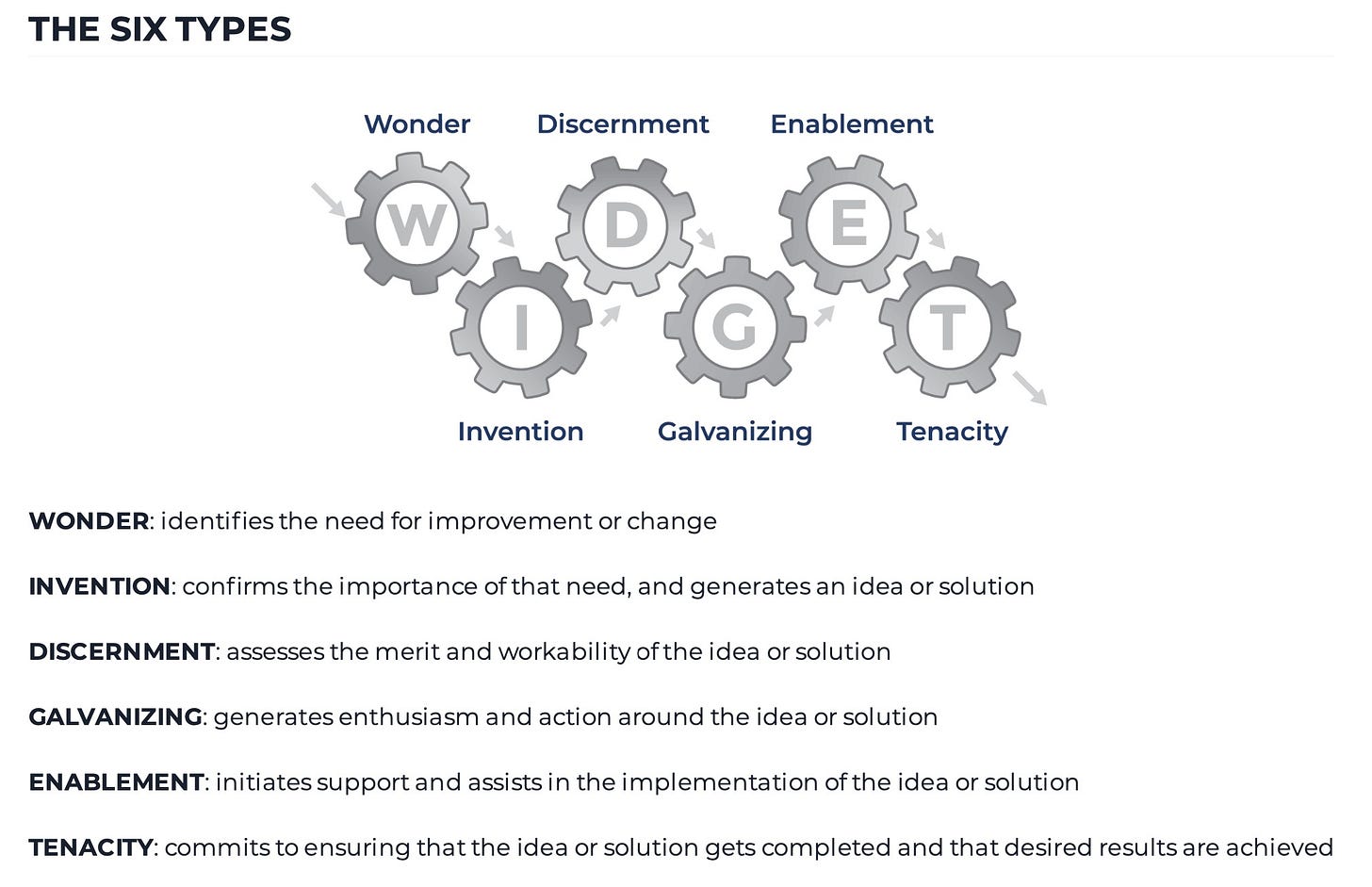Working genius
Prime Future 139: the newsletter for innovators in livestock, meat, and dairy
If you've been around here very long, you know my obsession with this idea from Allen Nation:
"The innovative farmer is seen by his farm neighbors as a lunatic farmer. And a lunatic is not seen as a role model. As a result, what the innovator does on his/her farm is literally invisible to the neighbors. This is true even if the innovation is producing visible wealth. The normal reaction to unconventional success is the old it-might-work-there-but-not-here syndrome.
The sad truth is that the vast majority of farmers prefer to fail conventionally rather than to succeed unconventionally. It is very, very difficult to be more innovative than the community in which you live."
(Turns out Nation was paraphrasing the economist John Maynard Keynes who made the observation that most humans would rather fail conventionally than succeed unconventionally. Checks out, doesn’t it?)
Lunatic farmers make agriculture dynamic. They are the single most interesting thing this industry has going for it, IMO.
It’s fascinating talking with farmers who have a drastically different business today than they did 30, 20, or even 5 years ago. They've 10x'd capacity, created a new market, or redesigned their business model....or they've done some magical combination of all 3.
I always wonder what separates these lunatic farmers from the farmers whose businesses only incrementally change with time and the slow carving of going with the flow of traditional market forces.
A lot of things could explain the gap: attitude, skills, relationships, market timing, location, access to capital. The list goes on.
But increasingly, I think it's all about the decision maker(s) DNA.
I'm a sucker for tools like StrengthsFinders or the Enneagram, tools that help us better understand ourselves and other people and how to be more effective doing work that involves people (aka all work). None of these tools are perfect but most of them offer some little nugget to increase self-awareness and effectiveness.
I recently found a new one called Working Geniuses by Patrick Lencioni. And it hit me that this theory likely explains a super high percentage of what makes lunatic farmers lunatics.
See it? The lunatic farmers are the ones whose Working Genius leads to 10x’ing a business, who naturally derive energy and joy from doing the things that radically drive their business whether strategic planning, forging new markets & customers, implementing win-win partnerships that allow both sides to grow their business profitably, or exploiting (in the good way) emerging trends and technology.
The lunatic farmer derives energy & joy from doing things that drain energy & joy from the average farmer.
Lencioni’s theory is that each person has 2 areas of Working Genius, 2 areas of Working Competency, and 2 areas of Working Frustration.
It’s not about what someone’s geniuses are, it’s about how they put them to work.
If the Working Genius model is true, then those same producers whose own Working Geniuses are the DNA that drives their business to continually higher levels also have 2 areas of Working Frustrations, things that drain their energy.
My hypothesis is that lunatic farmers with 10x capabilities are the ones who put their own geniuses to work and then find business partners with complementary working geniuses.
The book First Friends: The Powerful, Unsung (And Unelected) People Who Shaped Our Presidents illustrates this idea in politics. But the pattern is everywhere: the visionary leader with the execution-focused partner, the partnership-centric CEO with the get-it-done COO, the agronomic wunderkind working with the markets guru, the production-focused partner and the customer-focused partner, etc.
So the idea of being fiercely collaborative at an organization level is directly connected to this idea of maximizing return on all the things (opportunity, talent, capital, joy) by smartly collaborating at an individual level.
Lunatics who get 10x results do both. Long-term games with long-term people.



